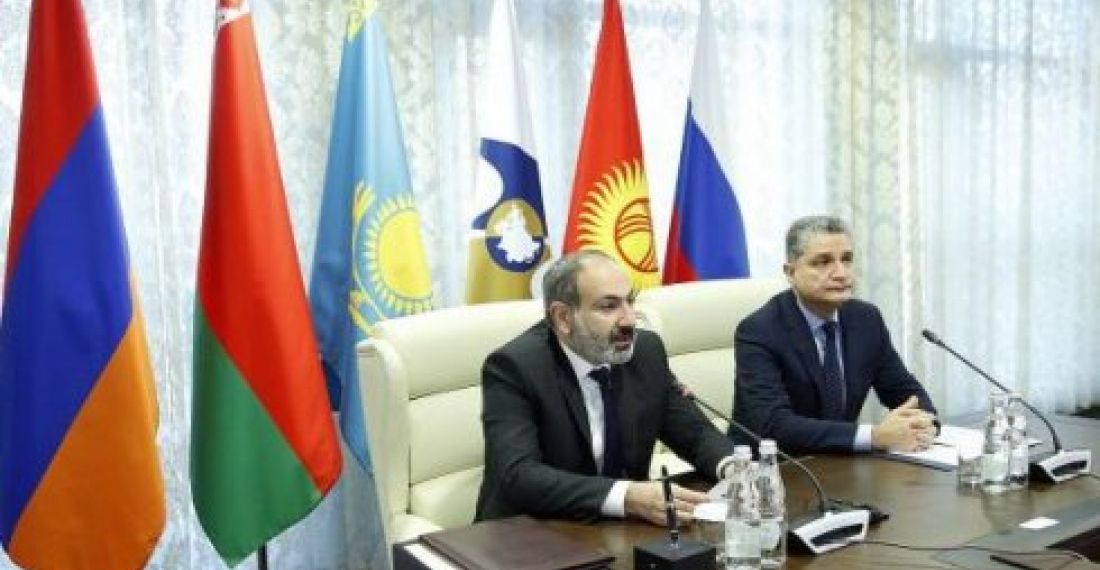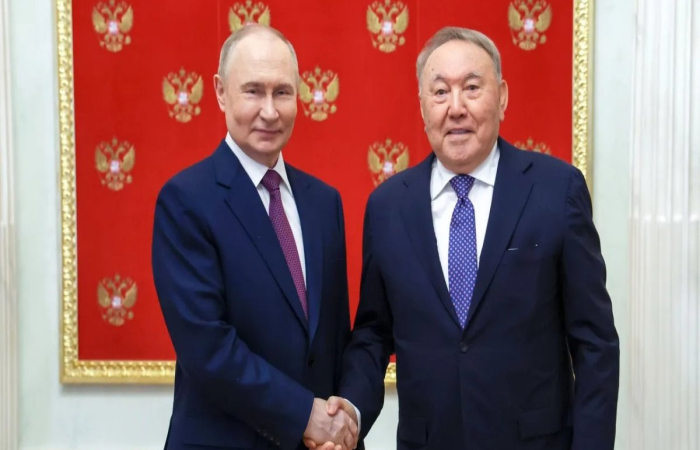Armenian prime minister Nikol Pashinyan addressed a message to the leaders of the member states of the Eurasian Economic Union (EAEU). Speaking at the EAEU headquarters in Moscow, at an event to mark Armenia taking over the annual rotating chairmanship of the organisation, the Armenian prime minister hailed the achievements of the EAEU since it was established five years ago.
In his message to the other leaders of the member states of the organisation, Pashinyan said,
"From January 1, 2019, the Republic of Armenia assumed the presidency in the Eurasian Economic Union bodies - The Supreme Eurasian Economic Council, the Eurasian Intergovernmental Council and the Eurasian Economic Commission Council.
Armenia's chairmanship coincides with the 5th anniversary of signing the Eurasian Economic Union treaty. In the last five years, the Eurasian Economic Union accomplished itself as a successful integration union, and despite the difficulties in the initial years, it is currently demonstrating a decisive growth in trade and economic relations structural diversification and mutual trade.
For EAEU member countries Eurasian integration is a primary direction that enables to improve business conditions, strengthen cooperation with traditional partners and create new partnerships for utilization of the integration union's economic potential. At the same time, all member states should make every effort to continue and boost the institutional development of the EEU. Armenia, in turn, will do everything in order for the positive dynamics of integration to be maintained, and for the issues that can be an additional encouragement for economic growth for our countries do be solved".
During his visit to Moscow, Pashinyan also met with Russian prime minister, Dimitri Medvedev.
source: commonspace.eu
photo: Armenian prime minister Nikol Pashinyan speaking at the headquarters of the EAEU in Moscow on 25 January 2019 (picture courtesy of the press service of the Government of Armenia.






